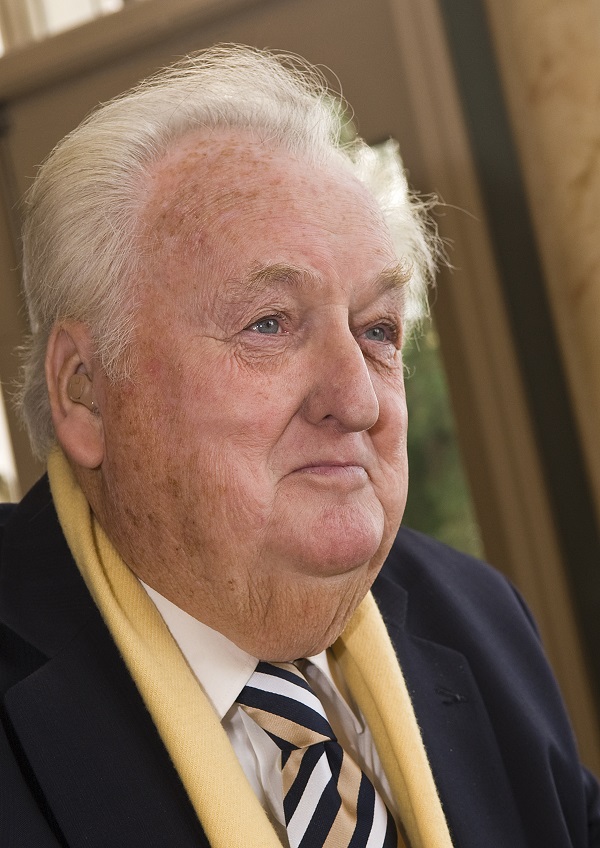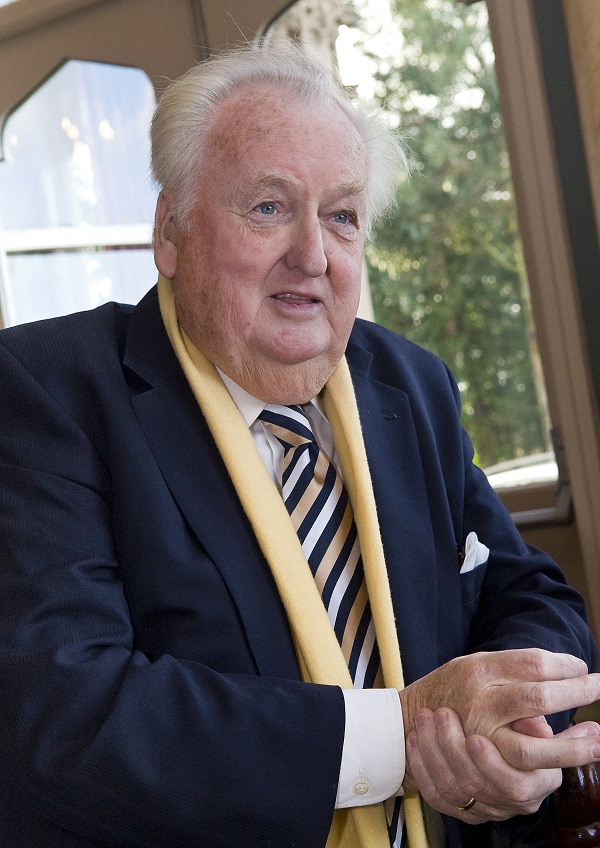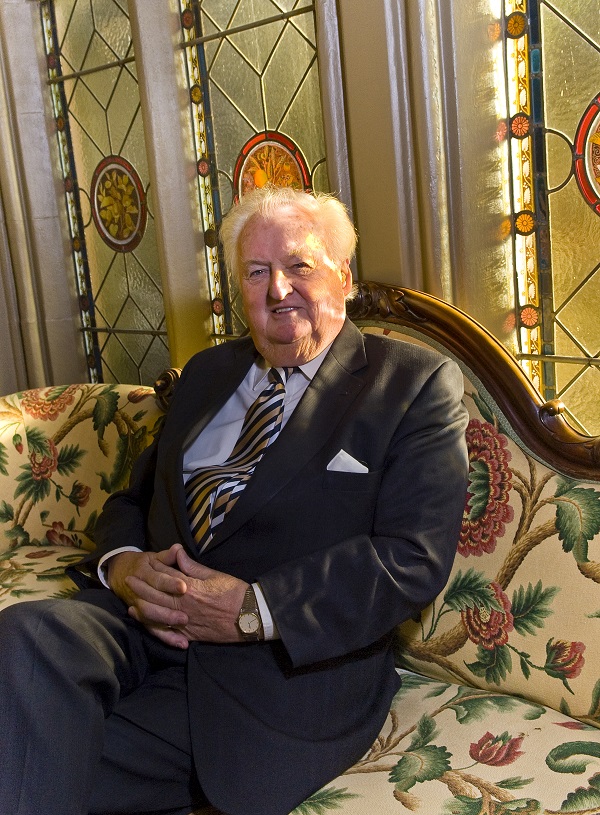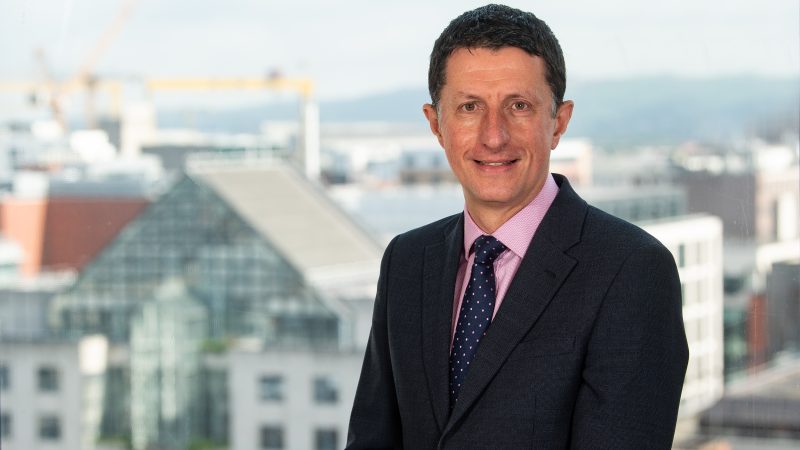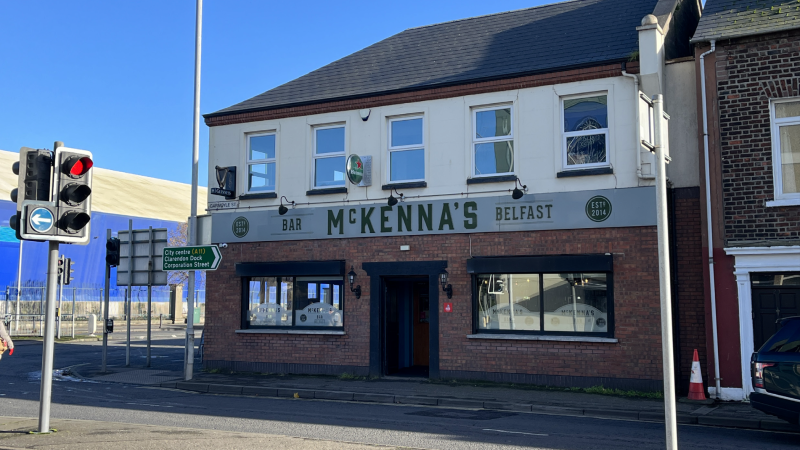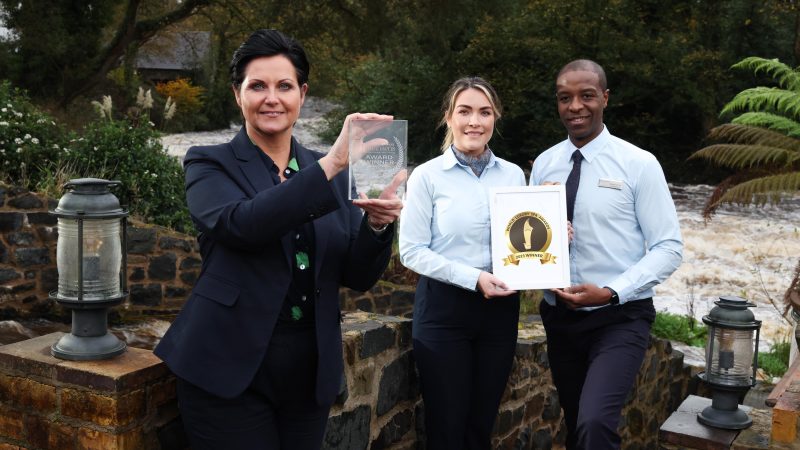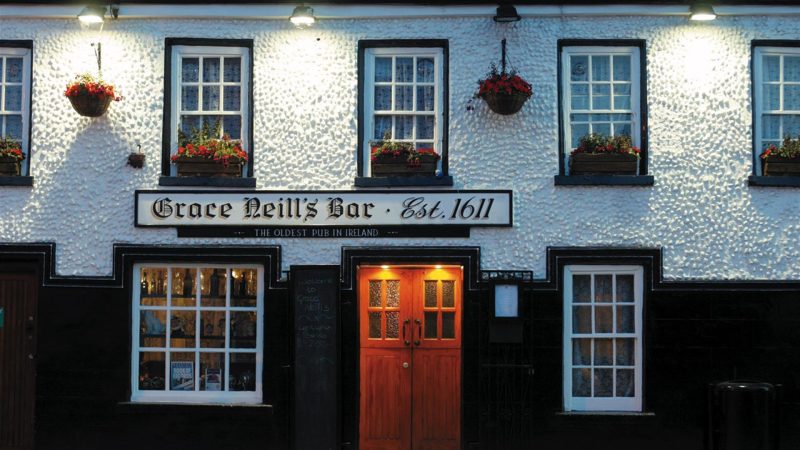The Midas Touch
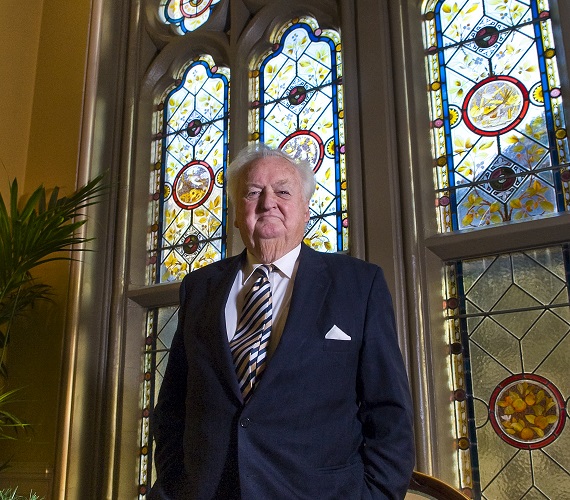
His is, perhaps, one of the most recognisable faces across the hospitality trade in Northern Ireland today. Still hugely active at the age of 86, his stewardship has transformed the family business into one of the most successful indigenous hotel groups in the country with an annual turnover of around £40m. He’s been speaking to Russell Campbell…
William (Billy) Hastings came late to the trade that would eventually make him his fortune, his early working years spent instead in the Belfast timber trade in a job which he confesses he loved.
It was his late brother, Roy, who was responsible for interrupting William’s first taste of working life. Roy had been looking after the family’s pub and bottling business since the death of their father in 1940, managing and expanding it through the War years, and William remembers well the day that Roy invited him to take his place in the family business:
“He just took me out and told me that the business belonged to all of us. He bought me a watch and a meal and from that day on, we worked together,” he recalls. “I couldn’t have told you what was mine and what was his, there was no question of rivalry between us.”
Those family ties are still an important and unavoidable aspect of the modern Hastings business – all four of William’s children are now employed in a variety of management positions, overseeing marketing, finance and operational issues in the group’s six luxury hotels.
Indeed, William concedes that ensuring the business was big enough to be able to offer his offspring a living was an important motivational factor in his success over the years.
And he’s quick to acknowledge his father’s foresight in establishing the business:
“He was first generation, he was the one who did the spadework,” he remarks. “I was born into the business, although that can be quite difficult too, it can be hard to take on the things that you’re born into. From me very earliest days, my father would have had me washing dishes, I had to stand on a box to get it done.”
Sadly though, William’s partnership with his brother was to last for only seven years before Roy passed away in 1954 at the age of 30 from a kidney condition, leaving William with a collection of nine owned pubs to look after at just 25 years of age.
Within two years, however, William had acquired another bar, The First and Last on the Newtownards Road, which he managed for Senator Wilson Boyd. And by 1958, he had bought all four of the senator’s premises to give him a portfolio of 13 mainly working class pubs in different areas of Belfast.
In those days, the family business also included a wholesale bottling concern based at Lord Street off the Albertbridge Road in Belfast. It grew rapidly throughout the 1960s and eventually amalgamated with the Bridge End Bottling Company, part of a pub group owned by Bill O’Hara. Both he and William became joint managing directors of the new firm, the Ravenhill Bottling Company, so named for its plush new premises on the Ravenhill Road.
The firm is notable not just for its subsequent success, but also because it became the first company outside of Copenhagen to be granted the rights to bottle Carlsberg lager. It was a milestone in the development of the Ravenhill Bottling Company and contributed to its success in attracting a variety of other high profile agencies, including Teachers Scotch Whiskey and Gold Label barley wine.
After a decade of formidable growth, the company was eventually sold to Bass Ireland, providing a welcome £110,000 fillip for the Hastings company which, by 1970, had already begun transforming itself from pub chain to hotel group.
William recalls a variety of reasons for that metamorphosis, including a belief that because of licensing restrictions, it was easier to do business in hotels than in bars:
“When I got the opportunity to dip my toe into the hotel trade, I took it,” he says simply.
It was in 1964 that he bought the Adair Arms Hotel in Ballymena for £30,000 and set about renovating and extending the premises which, at that time, was one of the most successful hotels in the district.
The flagship Culloden hotel – built in the Scottish baronial style and once used as a Bishop’s palace – was purchased for £100,000 in 1969.
“If you did a good deal, then you got your money back quickly,” says William. “If you made a bad deal then you had to work all the harder at it. I always stayed within the bounds of what I was capable of. I didn’t go to the bank to work out my justifications, I justified things to myself first then I went along to the bank and told them what I needed.”
By 1980, William had either sold on or leased the remaining bars in his company portfolio.
And a package of hotels which he’d bought from the Ulster Transport Authority for £440,000 in 1971 and which he refers to as ‘the railway hotels’, had also been disposed of or converted to other uses, including the Laharna in Larne, Belfast’s Midland hotel and the iconic Northern Counties in Portrush.
The whole package had been bought just as the Troubles were entering their most volatile period and no-one could have predicted the impact that the unrest would have on business, particularly the hospitality trade.
Today, the only one of that original UTA package which still remains in Hastings’ hands is the Slieve Donard in Newcastle, survivor of four terrorist bomb attacks and now a flagship resort and spa.
By 1994, Belfast’s ill-fated Europa hotel had gained a reputation as the most bombed in the world. There was little interest from the bigger brands in taking on the venue and so William stepped in and bought what was, at that point, a bombed-out shell. With the help of financial director, Edward Carson and William’s son, Howard, who was, by that time, managing director of the group, the hotel was brought back from the brink and set on a path towards its modern incarnation as perhaps, the best known city centre hotel in the country. Much of the credit for its rejuvenation from the mid-90s onwards goes to its GM at the time, John Toner.
“In terms of the business, over the years, we’ve always worked desperately hard,” reflects William. “Every one of our hotels is different. We’ve deliberately gone the four-star route, five where possible, but we could have chosen to go budget, like Diljit Rana has done. He’s someone who knows how to get good deals from people and how to build economically. Everybody has their own gifts.
“But I like to hear people saying that the Culloden is the only place that they’ll go, I love to hear that. I don’t think I’m a proud person, I just like to do things right and there’s pride in achieving the things that you want to do. There’s self-satisfaction when you get things right and that’s still the ambition for the business today.
“I don’t have an extravagant lifestyle and I don’t have an ambition to have more money than I do today. If it was just a question of money, budget would have been the easiest route, but the money is just a marker of what you have achieved, it’s something that lets you move forward with what you really want to do.”
William tells a story of an encounter with a fruit supplier to one of the hotels at 5am that morning. He recalled how much she appeared to be enjoying the work:
“You can forget about people who love their work,” he states. You know they’ll do whatever is necessary. We spend a lot on training, but you can’t train people to be like that. You can’t put common sense into people that have none.”
And he goes one:
“This whole business is changed. Seventy-five per cent of employees are now graduates…staff today aren’t servile any more because they know what they are about and they give a better service because of that. They’ve moved from simply being servile to giving effective service, it’s not a profession for lost people anymore.”
William Hastings received a knighthood in 2009 recognising his services to tourism and a lifetime of community and charity involvement. He and Joy, his wife of more than 50 years, travelled to London to accept the honour from the Queen.
He says clearly that he never wants to retire.
“I’ve been looking at a few things,” he remarks almost casually. “I own 50 per cent of the Merrion now you know? I’m very excited about that. You know, the truth is, two or three years ago, I could have bought some of the things I was looking at for a very good price and I probably should have moved on them. Ashford Castle was one, Fota Island was another. They were all bought for those good prices while I was looking at silly details. It was all just whataboutery, I shouldn’t have bothered, but I was worried, I was too cautious by half.”
He’s reluctant to take a back seat – he claims he’ll take the steering wheel with him when he does – but he concedes that his work life these days is “nothing like it used to be”:
“I used to be a five-nights-a-week man, now I take things a lot easier,” he says.
And what of the future?
“We’ll keep on improving,” he says simply. “There will be big spend on all the properties, we’ll keep improving our technology and our management expertise and we’ll take advantage of the opportunities in all areas.
“If you really want something then I think you should get it and worry about the problems later,” he advises. “You know, the projects that I have done best with in my life are the ones that I knew least about when I took them on…”.


